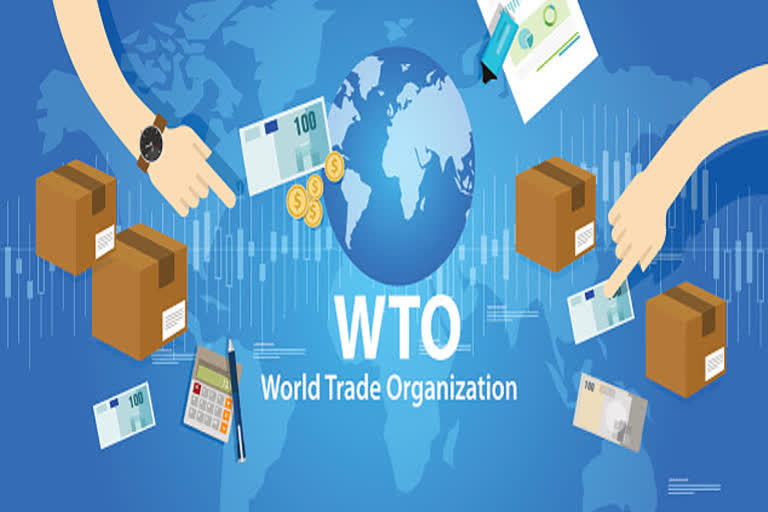New Delhi:In mid-May 2020, the incumbent Director General (DG) of the World Trade Organization (WTO), Roberto Azevedo of Brazil, abruptly announced his intention to leave his position by end August 2020, a full year before the end of his second four-year term. The selection of a new DG for the WTO represents both a challenge and an opportunity at a time of major disruptions in international relations.
The WTO takes decisions by consensus. It is the DG who works behind the scenes to generate consensus among WTO members, chairing the well-known 'Green Room' process. This informal mechanism brings together selected heads of delegations, including coordinators of all the major groups within the WTO membership, to reach consensus on contentious issues. About 40 delegations are normally included in this process, which often results in new approaches to resolve difficult issues. During these informal discussions, while Trade Ministers heading participating delegations handle discussions on 'trade-offs' on politically important WTO issues, the Director-General is often called upon to iron out more technical difficulties raised by fewer countries. The principle underpinning the work of the 'Green Room' process is that “nothing is agreed until everything is agreed”.
READ:|WTO head quits amid crisis of global commerce due to COVID-19
Until the current deadlock in the Doha Development Round of trade negotiations, the 'Green Room' process has generally given results that have been endorsed by WTO Ministerial Conferences, such as the decision of the First WTO Ministerial Conference at Singapore in 1996 to defer 'new issues' like investment and competition policy till after the implementation of the foundational WTO agreements reached during the Uruguay Round in 1994. Similarly, the agreement of the WTO to negotiate trade facilitation rules was the outcome of intensive informal consultations held in the 'Green Room' process as part of WTO Ministerial Conferences between 1996 and 2003. India has always been a proactive member of the 'Green Room' process.
The WTO General Council acted quickly under its agreed procedure adopted in January 2003 to designate one month from 8 June to 8 July 2020 to seek nominations for the position of DG from its members. By 9 July 2020, eight nominations had been received, including three women candidates (from Kenya, Nigeria and South Korea). Egypt, Mexico, Moldova, Saudi Arabia and the UK have fielded candidates.
Between 15-17 July 2020, the WTO General Council will hold interactive meetings with each of the eight candidates to try and reach a consensus decision on the next DG. India inexplicably did not field any candidate, despite this unique opportunity to take the lead in reforming multilateralism by heading the WTO Secretariat. The dynamic for reaching a consensus on the next DG will depend on what WTO members expect the organization to do in the current international situation. It will also depend on the narrow national interests of the major trading nations in the WTO.
READ:|India becomes second largest source of FDI for UK
The relevance of belonging to the WTO is illustrated by the fact that its 164 members account for 98% of international trade. The WTO commits its members to uphold two core principles in their trade policies. These are the Most Favoured Nation (MFN) Treatment and National Treatment, under which WTO members may not discriminate between their trading partners and must give the same treatment in their markets to both imported and local goods and services. For developing countries like India, the next DG’s demonstrated commitment to these two principles in the face of growing protectionist sentiment in major markets will be a key factor.
Two issues will dominate the calculations of the major trading nations in joining consensus on the next DG of the WTO. One is the ability of the next DG to facilitate the conclusion of the WTO’s Doha Round of market access negotiations, which have been deadlocked for more than a decade. These negotiations include market access in agriculture, in which India has significant stakes from her food security and employment perspectives.
The other is the ability of the DG to restore the functioning of the WTO’s dispute settlement mechanism (DSM). This mechanism has successfully resolved more than 500 international trade disputes since 1995 through a mix of 'political flexibility and legal integrity'. India has been one of the most active users of this mechanism, obtaining positive outcomes in trade disputes against economic powerhouses such as the United States and European Union without being subjected to bilateral pressures.
